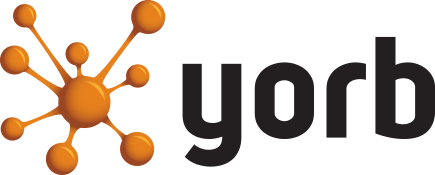Localised Content Creation
Creating localised content, such as blog posts, articles, and infographics, is an excellent way for small businesses to attract more local customers. By creating content that is relevant to their local area, small businesses can establish themselves as experts in their field and attract more local customers.
Local Link Building
Link building is an essential aspect of SEO, and for local SEO, small businesses can focus on building local links from relevant local websites and directories. By building local links, small businesses can improve their online authority and attract more local customers.
Advanced Local SEO Techniques
Schema Markup
Schema markup is a type of microdata that helps search engines understand a website's content better. By adding schema markup to a website, small businesses can improve their search engine ranking and attract more local customers.
Online Reviews and Reputation Management
Online reviews and reputation management are crucial for small businesses looking to improve their local SEO. By encouraging customers to leave positive reviews and responding to negative reviews, small businesses can improve their online reputation and attract more local customers.
Local Citations
Local citations are mentions of a small business's name, address, and phone number on other websites, directories, and platforms. By building local citations, small businesses can improve their online authority and attract more local customers.
Geotargeting and Localised Ads
Geotargeting is a marketing technique that targets customers based on their location. By using geotargeting in their online advertising campaigns, small businesses can attract more local customers and improve their local search ranking.
Mobile Optimisation
With the rise of mobile devices, mobile optimisation has become an essential aspect of local SEO. By optimising their website for mobile devices, small businesses can improve their online visibility and attract more local customers.
Tracking and Measuring Local SEO Success
Tracking and measuring the success of a local SEO campaign is essential for small businesses to understand what is working and what needs improvement. Google Analytics, Google Search Console, and other local SEO tools can help small businesses track their local search ranking, website traffic, and other key metrics.
The Basics of Local SEO
Understanding Google Business Profile
Google Business Profile (previously Google My Business) is a free online tool provided by Google that helps small businesses manage their online presence across Google, including Google Maps and Google Search. By creating a Google Busines profile and optimising it, small businesses can increase their online visibility and attract more local customers.
NAP Consistency
NAP stands for Name, Address, and Phone Number. Consistency across all online directories and platforms is essential for small businesses to improve their local SEO. NAP consistency helps search engines recognise a small business's online presence and rank it higher in local search results.
On-Page Optimisation
On-page optimisation involves optimising a website's content, metadata, and other elements to improve its search engine ranking. For local SEO, small businesses can optimise their website's content to include relevant keywords and location-based phrases to attract more local customers.

Local Search Engine Optimisation (SEO)
Are you a small to medium business owner struggling to attract customers in your local area? Have you considered using local search engine optimisation (SEO) to boost your online presence?
If not, it's time to start. By focusing on local search terms and local directories, you can increase your visibility in local search results and attract more customers to your business.
What is Local SEO?
Local SEO refers to the process of optimising a website and online presence to improve its visibility and ranking in local search results. The goal of local SEO is to increase a small business's online visibility and attract more local customers to their physical location.
Why is Local SEO Important for Small Businesses?
Local SEO is important for a number of reasons. First, it can help you attract more customers from your local area. By optimising your website and online presence for local search terms, you can increase your visibility in local search results and attract more customers to your business.
Second, Local SEO can help you compete with larger businesses in your area. By focusing on local search terms and local directories, you can make it easier for customers to find you online and compete with larger businesses with more resources.
Finally, Local SEO can help you build trust with your customers. By having a strong online presence and positive reviews, you can build trust with your customers and establish yourself as a reputable business in your local area.

Common Local SEO Mistakes to Avoid
There are several common local SEO mistakes that small businesses should avoid, such as
- not optimising their Google Business profile,
- having inconsistent NAP information,
- not creating localised content,
- not monitoring online reviews.
FAQs about Local SEO
-
What is the difference between Local SEO and regular SEO?
The main difference between Local SEO and regular SEO is the focus on local search terms and directories. Local SEO is designed to help businesses attract customers from their local area, while regular SEO is focused on ranking in search results more broadly.
-
How long does it take to see results from Local SEO?
The time it takes to see results from Local SEO can vary depending on a number of factors, including the competitiveness of your industry and the strength of your online presence. In general, you can expect to see results within a few months of implementing Local SEO strategies.
-
Can Local SEO help me attract more customers to my brick and mortar store?
Yes, Local SEO can help you attract more customers to your brick and mortar store by increasing your visibility in local search results and driving more foot traffic to your business.
-
Can I do Local SEO myself, or do I need to hire a professional?
While it is possible to do Local SEO yourself, it can be time-consuming and challenging, especially if you don't have experience with SEO. Working with a professional SEO agency or consultant can help you achieve better results more quickly.
-
How do I know if my Local SEO strategies are working?
You can track the success of your Local SEO strategies by monitoring your website traffic, phone calls, and foot traffic to your business. Be sure to use tools like Google Analytics and Google Business Profile (Previously Google My Business) Insights to track your progress over time.
